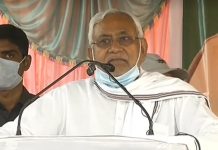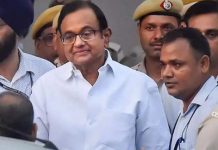The Bench has constituted an expert committee to review the regulatory mechanism in light of the fact that Adani stock crash was precipitated by a report published by Hindenburg Research exposing alleged murky affairs of Adani group of companies, reports Mudit Mathur
In order to protect Indian investors against volatility of the kind which has been witnessed in the recent past after publication of Hindenburg Research report on 24 January exposing alleged murky affairs of Adani Group of companies, the Supreme Court of India appointed six-member expert committee headed by former judge of the apex court, Justice Abhay Manohar Sapre, and enlarged the ambit of ongoing investigations by directing SEBI (Securities and Exchange Board of India) to include other pointedly referred issues agitated in various petitions before it.
While entertaining a batch of civil and criminal petitions concerning the loss of investors’ wealth in the securities market over the last few weeks because of a steep decline in the share prices of the Adani Group of companies, Chief Justice of India, Dr Dhananjaya Y Chandrachud, pronounced the reportable order of the Bench comprising Justice Pamidighantam Sri Narasimha and Justice JB Pardiwala. The bench constituted an expert committee to review the regulatory mechanism in the light of the Adani-Hindenburg issue. The decline in the share price was precipitated by a report published by Hindenburg Research.
Hindenburg Research inter alia alleged that the Adani Group of companies have manipulated its share prices; failed to disclose transactions with related parties and other relevant information concerning related parties in contravention of the regulations framed by SEBI; and violated other provisions of securities laws. The report also revealed that Hindenburg Research has taken a short position in the Adani Group companies through US traded bonds and non-Indian traded derivative instruments. It is against this background that a number of civil and criminal writ petitions came before the court for consideration.
The civil writ petition filed Vishal Tiwari expressed concern that public money amounting to thousands of crores is at risk because public institutions like the State Bank of India and the Life Insurance Corporation of India are exposed to the Adani Group. It urged the issuance of directions to the Union of India and the Union Ministry of Home Affairs to constitute a committee headed by a retired judge of the Supreme Court to investigate the contents of the report published by Hindenburg Research.
Supreme Court advocate Manohar Lal Sharma preferred a criminal writ petition urging the issuance of directions to the Union Ministry of Home Affairs to register an FIR against Nathan Anderson (founder of Hindenburg Research) and his associates for short selling, and for directions to recover the profits yielded by the short selling to compensate investors.
Anamika Jaiswal filed a civil writ petition stating that “the Adani Group has been in flagrant violation of… Rule 19A of the Securities Contracts (Regulation) Rules by surreptitiously controlling more than 75% of the shares of publicized Adani group companies, thereby manipulating the price of its shares in the market.” It further sought a court-monitored investigation by a Special Investigation Team or by the Central Bureau of Investigation into the allegations of fraud and the role played by top officials of leading public sector banks and other lender institutions.
Congress leader Dr Jaya Thakur filed a writ petition (criminal) seeking directions to any investigative authority to: (i) investigate the Adani Group companies under the supervision of a sitting judge of the Supreme Court; and (ii) investigate the role of LIC and SBI in these transactions.
During the initial stage of hearing in early February, the Court indicated that there was a need to review existing regulatory mechanisms in the financial sector to ensure that they are strengthened with a view to protect Indian investors from volatilities in the market. The court suggested to the Solicitor General that he may seek instructions from the Union of India on the constitution and remit of an expert committee.
On behalf of SEBI, it was submitted before the Court that “on the subject matter of these petitions it is already enquiring into both, the allegations made in Hindenburg report as well as the market activity immediately preceding and after the publication of report, to identify violations of SEBI regulations including but not limited to SEBI (Prohibition of Fraudulent and Unfair Trade Practices relating to Securities Market) Regulations 2003, SEBI (Prohibition of Insider Trading) Regulations 2015, SEBI (Foreign Portfolio Investors) Regulations 2019, Offshore Derivative Instruments (ODI) norms, short selling norms, if any. As the matter is in early stages of examination, it may not be appropriate to list details about the ongoing proceedings at this stage.”
The court felt in its detailed orders that “SEBI has not expressly referred to an investigation into the alleged violation of the Securities Contracts (Regulation) Rules 1957 which provide for the maintenance of minimum public shareholding in a public limited company. Similarly, there may be various other allegations that SEBI must include in its investigation.” Thus, enlarging the ambit of its ongoing investigation, the Court directed, “SEBI shall also investigate the following aspects of the issues raised in the present batch of petitions.”
The directions framed pointed issues to include in its ongoing investigations: “(a) Whether there has been a violation of Rule 19A of the Securities Contracts (Regulation) Rules 1957; (b) whether there has been a failure to disclose transactions with related parties and other relevant information which concerns related parties to SEBI, in accordance with law; and (c) whether there was any manipulation of stock prices in contravention of existing laws.” “The above directions shall not be construed to limit the contours of the ongoing investigation. SEBI shall expeditiously conclude the investigation within two months and file a status report,” it added.
Constituting an Expert Committee for the assessment of the extant regulatory framework and for making recommendations to strengthen it, the Court specified that the constitution of the expert committee does not divest SEBI of its powers or responsibilities in continuing with its investigation into the recent volatility in the securities market. It further directed, “SEBI shall apprise the expert committee of the action that it has taken in furtherance of the directions of the Court as well as the steps that it has taken in furtherance of its ongoing investigation.”
The Court also constituted an expert committee to review the regulatory mechanism in the light of the Adani-Hindenburg issue. The members of the committee include OP Bhat – former Chairman of SBI, retired Justice JP Devadhar – former judge of the Bombay high Court and former Presiding Officer of the Securities Appellate Tribunal, KV Kamath–former chief of the New Development Bank of BRICS countries and former the Chairman of Infosys Limited, Nandan Nilakeni – co-founder of Infosys, former Chairman of UIDAI and Somasekharan Sundaresan – Supreme Court Collegium recently reiterated his name for elevation as a Judge of Bombay High Court, overruling Centre’s objections. The Committee will be headed by former Supreme Court judge Justice AM Sapre.
The remit of the Committee shall be as follows: (a) To provide an overall assessment of the situation including the relevant causal factors which have led to the volatility in the securities market in the recent past; (b) To suggest measures to strengthen investor awareness; (c) To investigate whether there has been regulatory failure in dealing with the alleged contravention of laws pertaining to the securities market in relation to the Adani Group or other companies; and (d) To suggest measures to (i) strengthen the statutory and/or regulatory framework; and (ii) secure compliance with the existing framework for the protection of investors.
The court further directed the Chairperson of the Securities and Exchange Board to ensure that all requisite information is provided to the Committee. All agencies of the Union Government including agencies connected with financial regulation, fiscal agencies and law enforcement agencies shall cooperate with the Committee. The Committee is at liberty to seek recourse to external experts in its work.
Chairman of Adani Group Gautam, Adani tweeted, “The Adani Group welcomes the order of the Hon’ble Supreme Court. It will bring finality in a time bound manner. Truth will prevail.”
It is worth mentioning that the US-based Hindenburg published its report accusing Adani group of widespread manipulations and malpractices to inflate its stock prices. Adani Group denied the allegations by publishing a 413-page reply and termed it as an attack against India. Hindenburg retaliated with a rejoinder, stating that “fraud cannot be obfuscated by nationalism” and it stood by its report. After the publishing of the Hindenburg report, Adani shares crashed and the tormented group was also forced to recall its fully subscribed FPO because its share value came down in the open market.












